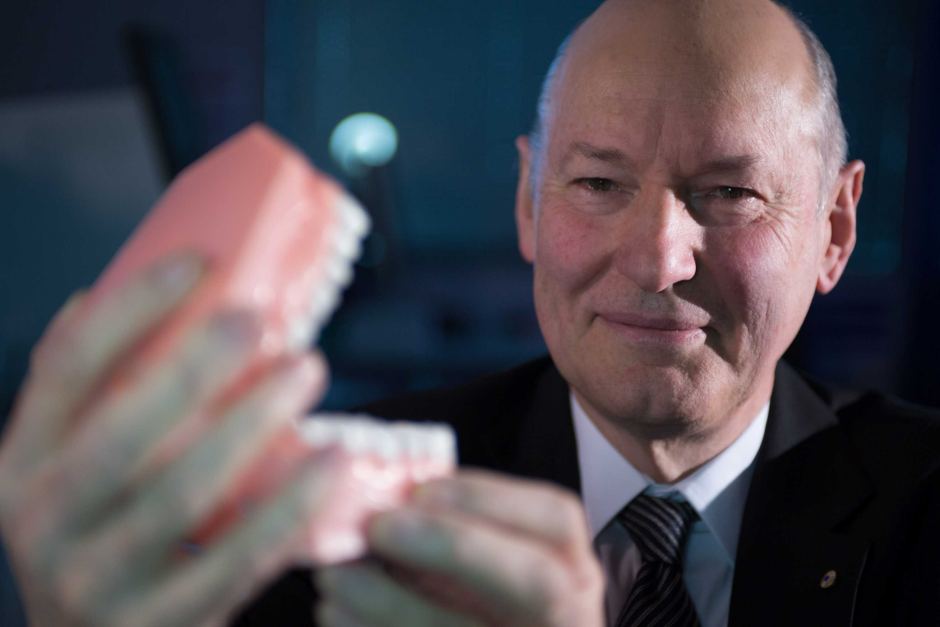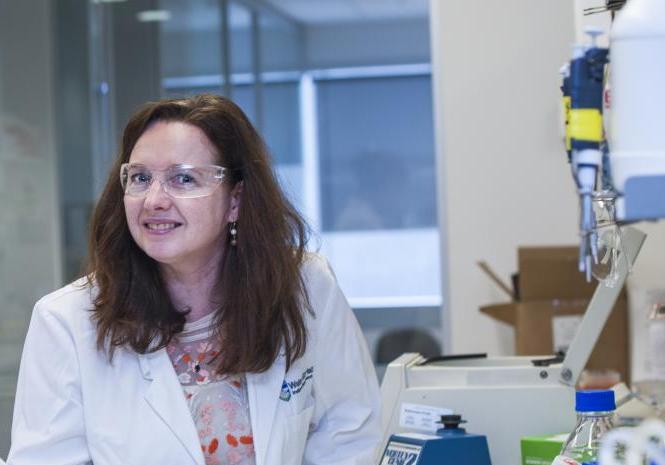Presenters
Colgate Eminent Speaker

Professor Sarah Baker
Professor of Psychology as applied to Dentistry. School of Clinical Dentistry.
The University of Sheffield, UK
The title of presentation:
Are we there yet? The contribution of social and behavioural sciences to oral health.
Short bio:
Professor Sarah Baker BSc, PhD, C.Psychol, AFBPsS is a Professor of Psychology as applied to Dentistry at the School of Clinical Dentistry, University of Sheffield and Chartered Health Psychologist with the British Psychological Society. She is currently Head of the Unit of Oral Health, Dentistry and Society in the School of Clinical Dentistry which incorporates paediatric dentistry, orthodontics, primary dental care and dental public health. She is Editor-in-Chief of the international flagship journal Community Dentistry and Oral Epidemiology; the first social scientist to become Editor of a Dentistry, Oral Surgery and Medicine journal. She is Past President of the Behavioural, Epidemiologic, and Health Services Research group of the IADR, and has received many international awards for her contributions to social and behavioural sciences in dentistry. These include the prestigious 2018 International Association of Dental Research, Distinguished Scientist Award for Behavioural, Epidemiological and Health Services Research, and the 2013, 2016 and 2022 IADR Giddon Award for Distinguished Research in the Behavioural Sciences. She has an Honorary Professorship at University College London, and holds an Honorary post in the Office for Health Improvement and Disparities (formerly Public Health England). She has authored 250 peer-reviewed publications, and been awarded over £8.5 million in research and consultancy income. She was a co-author on the recently published "Consensus Statement on Future Directions for the Behavioral and Social Sciences in Oral Health" published in the Journal of Dental Research (JDR), which highlights the current state of knowledge in the behavioural and social oral health sciences and identifies future directions for the field. Her central research interest is the examination of the psychological, social and behavioural factors which influence how individual’s experience oral health conditions. Understanding the role of such psychosocial factors allows her to explore potential mechanisms by which oral health impacts on an individual's quality of life and well-being and, in turn, develop, implement and evaluate intervention strategies to improve oral health both within clinical practice and for public health dentistry. She has collaborated with dental researchers around the world on a diverse range of projects from gum health, oral health inequalities, dentine hypersensitivity, dry mouth, dental caries, head and neck cancer, gerodontology, orthodontics, dental anxiety, to systems science and implementation of evidence-based care.
Summary of presentation:
The social and behavioural sciences are central to understanding and addressing dental, oral, and craniofacial health, diseases, and conditions, and are relevant to every discipline in dentistry. This presentation will highlight some of the ways in which the knowledge, methods and theories from social and behavioural sciences can help advance our understanding in oral health and has the potential to deliver more effective strategies for the complex challenges we face in dentistry. Many of these big challenges or Wicked Problems are multi-component in nature and too intractable to be managed or solved by working within traditional disciplinary boundaries. This talk will outline where we are currently, and the challenges and opportunities ahead.

Laureate Professor Eric Reynolds AO FICD FTSE FRACDS
CEO, Centre for Oral Health Research, Melbourne Dental School
The University of Melbourne
The title of presentation:
Periodontal disease management by modulation of plaque microbial composition.
Short bio:
Laureate Professor Eric Reynolds AO is Chief Executive Officer and Research Director of the Oral Health CRC at the Melbourne Dental School, the University of Melbourne. For 16 years until 2015 Eric was Head of the Melbourne Dental School. He has lectured and published extensively and has chaired and participated in a wide range of professional committees and panels. Eric was appointed an Officer of the Order of Australia for his service to community dental health in 2005. He received the Clunies Ross National Science and Technology award in 2002 and the Victoria Prize for Science in 2005. In 2011 he received the Distinguished Scientist Award from the International Association for Dental Research, and in 2015 the Leach Medal for research excellence and the Global Health Impact Award from the University of Melbourne. In 2016 he received the Award of Merit from the Australian Dental Association and in 2017 the Prime Minister’s Prize for Science Innovation. In 2019 he was elected Vice-President of the International Association for Dental Research and became President in July 2021. In 2020 he received the European Organisation for Caries Research Prize for outstanding scientific contribution and the American Academy of Periodontology Clinical Research Award.
Summary of presentation:
Periodontal diseases are characterised by chronic inflammation and can be classified into different clinical stages which are associated with transitions in plaque microbial diversity and signatures in composition. The transition from health to gingivitis is associated with a build up of plaque at the gingival margin resulting in inflammation, an increase in microbial diversity and soft tissue swelling to form a pocket. The environment of the pocket, which can become anaerobic, may allow the emergence of Gram-negative anaerobes and a further increase in inflammation and microbial diversity. The emergence of the Gram-negative anaerobes in a susceptible host and suitable pocket can lead to a state of dysbiosis, where the consortium of microbes in the periodontal pocket becomes pathogenic, with a transition from gingivitis to periodontitis involving destruction of the tooth’s supporting tissues. As periodontitis progresses from the early to late-stage disease the microbial diversity, particularly at the base of the periodontal pocket, can collapse to a smaller consortium of pathogenic species more typical of an infection. Detailed examination of this pathogenic consortium has revealed they are functionally congruent with their requirement for haem/Fe for virulence and the similar protein systems they possess for haem capture. Although overall these proteins have diverged in these different species they exhibit similar amino acid sequences around functional active sites, suggesting that they may represent a common therapeutic target. Using this as an approach, a chimera recombinant vaccine has been generated that induces antibodies that cross-react with these virulence proteins from a range of species e.g. Porphyromonas gingivalis, Tannerella forsythia, Prevotella intermedia and Treponema denticola. The chimera vaccine has been shown to prevent progression of periodontal disease in rodents and non-human primates by lowering the level of the pathogenic consortium and promoting the re-emergence of commensal species to promote homeostasis. In a recent human clinical trial using a saliva biomimetic, which has been shown previously to increase the level of plaque commensal/beneficial bacteria, the biomimetic significantly reduced gingival inflammation in a dose-dependent relationship. This reduction in gingival inflammation at a site level was closely associated with an increase in commensal species, particularly those known to be antagonistic to the periodontal pathogens and to suppress inflammation and induce mucosal tolerance. In conclusion, modulating plaque microbial composition by targeting pathogen virulence factors and/or by increasing the fitness of commensal/beneficial bacteria can improve mucosal homeostasis and periodontal health.
Professor Rachel Waddington
Oral Biochemistry
Cardiff University, UK
The title of presentation:
Reading the signals: Harnessing the capabilities of dental extracellular vesicles for regenerative medicine.
Short bio:
Professor Rachel Waddington is a Professor in Oral Biochemistry and the current President for the British Society for Oral and Dental Research within the IADR. With more than 35 years’ experience, her research has a particular focus for understanding the role of the extracellular matrix environment in regulating the biology and differentiation of mesenchymal stromal cells during bone and dentine repair; research that aims to be translational for provoking clinical benefit. She has authored 100+ peer-reviewed publications, book chapters and 200+ conference abstracts and co-edited 1 academic book reviewing current strategies for tissue engineering and regeneration in dentistry. She has successfully received grant funding from UK research councils, Wellcome Trust, Welsh government, EU, charity and industrial sources. This academic background supports a teaching excellence for undergraduate and postgraduates and she is program director for an MSc in Oral Biology.
Summary of presentation:
Mesenchymal stromal cells have for a long time been a focus for tissue regeneration throughout the body, however their success rates for incorporating into cell-based therapies remains unpredictable, where research estimates that only 3-10% of cells survive transplantation. Extracellular vesicles (EVs) released by these cells, are now increasingly being recognised as important protected signalling entities, with potential beneficial roles for promoting successful wound healing processes. Consequently, there has been much increasing excitement for the incorporation of EVs into tissue regeneration therapies. However, research is very much in its infancy and many questions need to be addressed if we are to produce productive lines of enquiry to successfully harness the signalling potential of EVs for the delivery of effective reproducible therapies.


Professor Richard Watt
Epidemiology & Public Health
University College London, UK
The title of presentation:
Next steps in tackling oral health inequalities.
Short bio:
Richard Watt is a Professor and Honorary Consultant in Dental Public Health, in the Department of Epidemiology and Public Health at UCL. He is the Director of the WHO, Collaborating Centre for Oral Health Inequalities and Public Health and Co-Chair of the Lancet Commission on Oral Health. He is also Director of Research for Central North West London NHS Foundation Trust. He graduated from University of Edinburgh Dental School in 1984 and then completed a MSc and PhD in Dental Public Health at UCL.
His main research interests focus on social and commercial determinants of health inequalities and the development and evaluation of community-based health improvement interventions. He has published more than 320 publications and secured £15 million in research income from NIHR, MRC, ESRC and NIDCR. In 2014 he received the IADR Distinguished Scientist Award for Behavioural, Epidemiologic and Health Services Research and in 2020 the IADR Distinguished Scientist Award for Global Oral Health Research. He is a past president of British Association for the Study of Community Dentistry.
Summary of presentation:
This presentation will reflect on the last 3 decades of research on oral health inequalities and will highlight future opportunities for policy development and research. In particular the importance of developing upstream interventions and working in partnership with communities to co-produce interventions will be highlighted.
Dr Lorraine O’Reilly
Senior Scientist
WEHI – Walter and Eliza Hall Institute of Medical Research, Melbourne
The title of presentation:
Advancing early diagnostic and treatment strategies for oral cancer using in vivo models.
Short bio:
Dr O’ Reilly studied immunology at the University of Glasgow and completed her PhD in the Department of Immunology at University College London. Following post-doctoral training at the University of Cambridge, England, she joined the Walter and Eliza Institute of Medical Research as a Wellcome Trust Fellow with Prof. Andreas Strasser in the Molecular Genetics of Cancer Division. During this time, she established the role of membrane and soluble FasL in apoptotic cell death and inflammation.
Currently Dr O’Reilly is based within the inflammation Division at WEHI, where her research program is focused on inflammation-associated cancers, in particular understanding the relationship between cytokines, the inflammatory signalling pathways; JAK/STAT and NF-kB in upper gastrointestinal cancers (oral, oesophageal, gastric) onset and progression. Her recent research showed that NF-kB1 and the cytokine TNF are critical regulators of gastric homeostasis and tumourigenesis. Current research is focussed on improving the early detection of oral cancer with a new approach using cancer detecting fluorescent imaging agents coupled with real time virtual 3-D biopsies in pre-clinical models to ultimately improve clinical outcomes.
Summary of presentation:
Oral squamous cell carcinoma (OSCC) is one of the most commonly diagnosed cancers globally, with a current five-year survival of ~50%. If progressive premalignant lesions can be detected early and in-situ, patients can be given less aggressive treatment, resulting in a more favourable prognosis. We are pioneering a new approach for accurate early OSCC screening. Since OSCC grows at the epithelial surface, it permits visual inspection and is readily accessible to novel non-invasive imaging technology, such as the OptiScan (ViewnVivo), a miniaturized handheld point-scanning confocal endomicroscope. The OptiScan coupled with a topically applied cancer tracer, allows us to non-invasively monitor tumorigenesis (virtual biopsy). This permits observation of the stages of cancer development with the quality of conventional pathology, but without the need for a surgical biopsy, providing high resolution at the single cell level to discriminate between oral tumour and non-tumour lesions.
Our studies focus on a murine model of OSCC that affects mainly the tongue and oral buccal mucosa, induced by chronic oral administration of the carcinogen 4-nitroquinoline-1-oxide (4-NQO). Our work has shown that the OptiScan is assisting diagnosis, to enable instantaneous, single cell resolution of the oral cavity in live mice, determining which tumour types can be detected. Learning from this model will have immediate translative implications on precision diagnostics in parallel with in vivo human studies.
Using genetic mouse models, coupled with 4-NQO administration, inflammatory parameters that affect human OSCC tumour development (immune cells and cytokines), have been manipulated to assess their involvement. These will be discussed as a rationale for future therapeutic manipulation of these pathways for OSCC.
